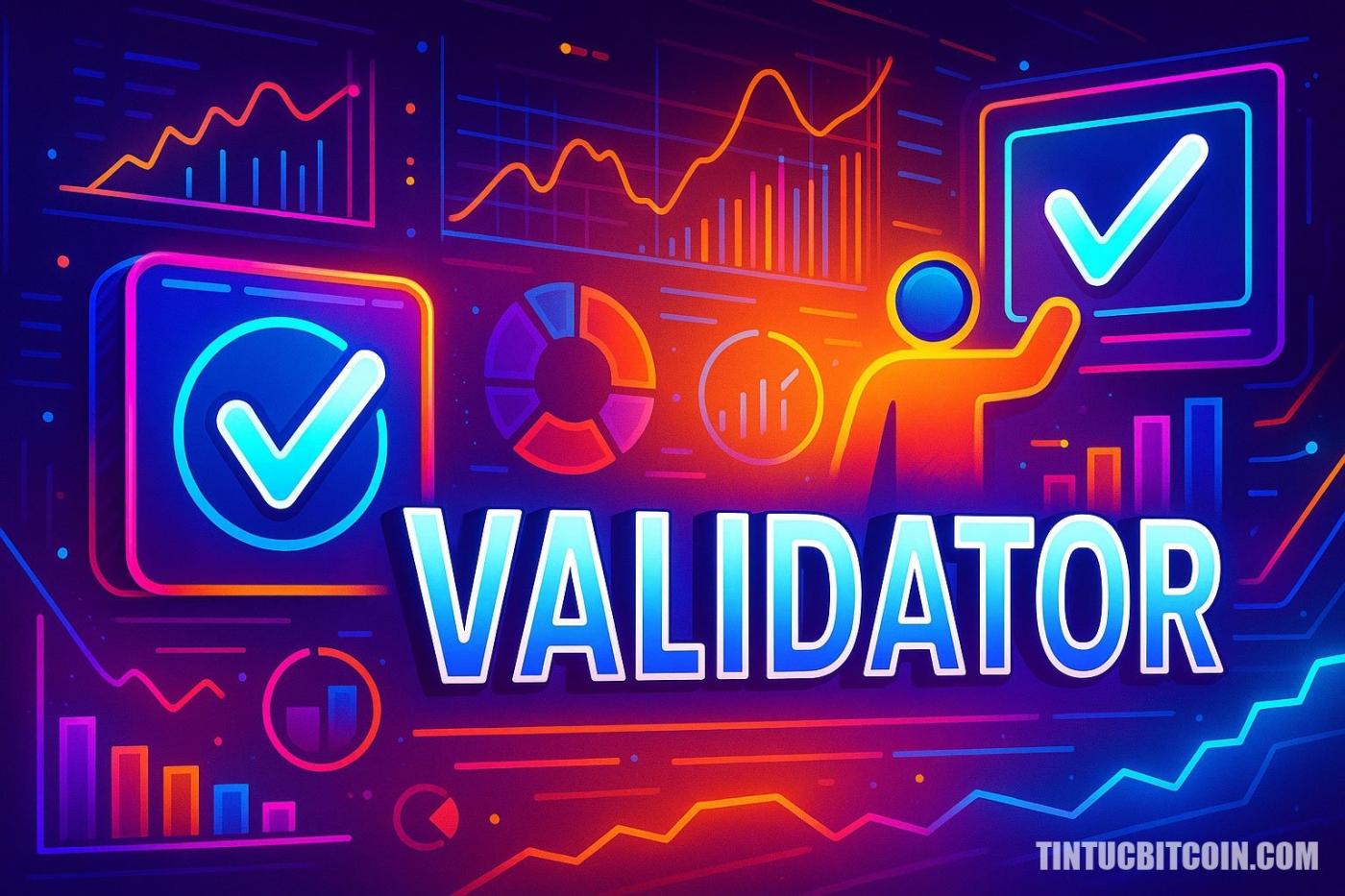
A Validator is a node on a Proof of Stake (PoS) blockchain that Vai and creates new blocks to maintain the security and integrity of the network, while also receiving Staking rewards.
In other words, a validator is a server that runs node software, Stake Token to be selected to participate in consensus, verifies transactions, and contributes to the governance of the decentralized blockchain system.
- Validator is the “backbone” of PoS blockchain , responsible for validating transactions, creating blocks and securing the network.
- To become a validator, you need to Stake Token, invest in hardware, software, and maintain a stable node .
- Validators can profit from transaction fees, but also face Slashing risks, operating costs, and Token price volatility.
What is a Validator?
Validators are nodes in the PoS blockchain that are responsible for validating transactions, proposing new blocks, and maintaining network consensus. They need to Stake a certain amount of Token as required by the blockchain to participate in the validation process.
While PoW blockchain calls the node a Miners, with PoS, the validator is the party responsible for operating, preventing fraud like double spending and helping to ensure decentralization.
The importance of validators in blockchain
Validators are considered the “backbone” of the blockchain because they directly affect the security, decentralization, and performance of the network. A blockchain can only operate stably when validators perform their tasks well.
This Vai includes: verifying transactions, creating new Block , maintaining security, controlling decentralization, and participating in voting on changes in the blockchain protocol.
“Validators are the first line of defense against fraud and network attacks, ensuring the blockchain operates transparently and sustainably.”
Vitalik Buterin, Co-founder of Ethereum , Devcon 2022 Conference
How does a validator validate transactions?
The validator validation process starts with Stake Token to qualify, then the blockchain selects validators based on the amount and duration of Stake.
When there is a transaction, the validator checks the digital signature, the number of Token, and then writes it to a new Block with the identifying signature.
This Block is sent to other validators to synchronize the data and complete the transaction. Finally, the validator receives a reward from the transaction fee.
What are the requirements to become a validator?
To become a validator, users need to choose a blockchain, Stake the required Token , and set up a stable node. Requirements may vary by blockchain.
In addition to Stake Token, validators need knowledge of computer networks, security, and node operations. Otherwise, Staking can be delegated through services like Liquid Staking, Validator as a Service, or Solo Staking.
“The validator infrastructure requires high stability, any technical problems can lead to lost rewards or Slashing penalties.”
Staking Rewards Report, Q2/2023
How does a Validator make a profit?
Validator profits come mainly from transaction fees and Staking rewards, which are distributed per epoch. For example, Ethereum has an epoch of about 6.4 minutes, while Solana has an epoch of about 2 days.
Users can estimate returns through tools like Staking Rewards, which provides data on global Medium Staking yield rates and validator rankings.
Risks of being a validator
Besides profits, validators face many risks such as Slashing, Token price fluctuations, and infrastructure costs. If a validator misvalidates or goes out of business, they can be penalized and lose their Stake Token .
In addition, validators must Token Lockup for a long time, unable to sell when the price fluctuates. The cost of hardware, software and electricity investment can reach thousands of dollars, creating financial pressure.
“Slashing is not only a disciplinary measure, but also a mechanism to force validators to maintain responsibility and integrity for the network.”
Ethereum Foundation Research, 2021
Comparing validator requirements on popular blockchains
| Blockchain | Minimum number of Token to Stake | Medium Epoch | Outstanding features |
|---|---|---|---|
| Ethereum | 32 ETH | 6.4 minutes | Largest DeFi and Non-Fungible Token ecosystem |
| Solana | Not fixed (depends on validator) | ~2 days | High transaction speed, low fees |
| Polkadot | 350 DOT (estimated) | 24 hours | Connect multiple Parachain, scalability |
Frequently Asked Questions
Does Validator need a lot of Capital to start?
Yes. Some blockchains require a high minimum Token amount, for example Ethereum requires 32 ETH, not to mention hardware and node operating costs.
Can a non-technical person become a validator?
Optional. Users can delegate Staking via Liquid Staking or Validator as a Service to earn yield without running a node.
Is validator profit stable?
The yield depends on the blockchain, the amount of Stake and the transaction fees in the network. In a downtrend, the yield can be lower.
How does Slashing affect validators?
Slashing can cause a validator to lose some or all of their Stake Token and be removed from the network for a long time.
Does Validator Make Blockchain More Decentralized?
Yes. Multiple validators operating in parallel reduce the risk of centralization of power and increase transparency in the network.








